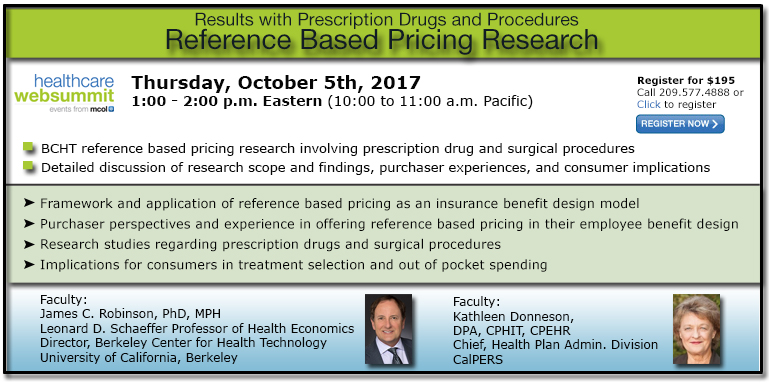

Click here
to view this message in a web browser
 |
||
| Reference Based Pricing Research - Experience With Prescription Drugs and Procedures | ||
|
Reference Pricing is an
insurance benefit design that encourages enrollees to favor providers
charging low prices for non-emergency “shoppable” surgical procedures,
diagnostic tests, and pharmaceuticals. Reference pricing can
motivate providers to compete based on price as well as quality, and to
pursue cost-reducing innovations. The Berkeley Center for Health Technology (BCHT) conducted a series of studies on the impact of reference pricing on consumer choice, provider prices, and savings for surgical procedures (orthopedics, ophthalmology), diagnostic procedures (CT scans, MRI scans, colonoscopies), laboratory tests, and prescription drugs, using health insurance data from insurers, self-insured employers, and employer associations. Reference pricing was shown to channel consumer choice toward lower-priced providers and products, and to significantly reduce spending. No effect was observed in utilization rates or in surgical complications. The implementation of reference pricing was associated with increases in consumer cost sharing for some services and products, and in decreases for others. Please join us Thursday, October 5th, 2017 at 1 PM Eastern as UC Berkeley's James Robinson, PhD, MPH and CalPERS' Kathleen Donneson, DPA, CPHIT, CPEHR discuss their research, purchaser experiences and consumer implications. Click here for detailed information and to register or call 209.577.4888. |
||
|
|
||
|
healthexecwire |